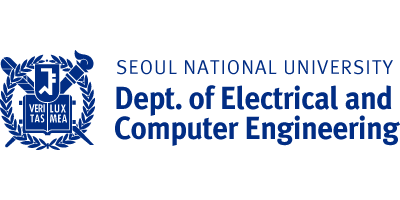Professor Hyung Cheol Shin, [Forum] Anti-national-interest Congress threatens the semiconductor lead. (The MunHwa Il-Bo, 2023.03.03)

Professor Hyung Cheol Shin,
Department of Electrical and Computer Engineering, SNU
As competition for technological dominance in the semiconductor industry intensifies and uncertainties in the global supply chain increase, competing nations are introducing various support measures to foster and protect their domestic industries. On 28th of the previous month, the U.S. government announced a plan to provide a massive $52 billion in subsidies to semiconductor companies over five years, and imposed stringent conditions on the $39 billion in subsidies provided to companies building semiconductor factories.
The plan requires a submission of a detailed plan for cash flow, internal rate of return, and profitability indicators. Any excess profits are to be shared with the US government, and the use of subsidies for dividend payments or share buybacks is prohibited. The plan also includes a ban on the expansion of semiconductor production capabilities in China and other countries for a period of ten years. Additionally, the plan mandates the provision of childcare services for employees and construction workers, and the use of US-produced steel and construction materials.
Additionally, the plan demands that the U.S. secucity agencies be allowed access to the production facilities on US grounds and thus effectively is demanding the disclosure of core semiconductor manufacturing processes. Upon examination of these conditions, it is easy to see that the plan aims to revive the somewhat sluggish U.S. semiconductor industry of recent times and to create jobs while restraining the development of semiconductor industries in other countries. Domestic companies such as Samsung Electronics, which currently produces 40% of NAND flash memory in China and plans to build 11 factories in Texas over the next 20 years, and SK Hynix, which produces 40% of DRAM in China, face excessive burdens on their business operations.
South Korean semiconductor industry faces difficulties amid talent shortage and technological limitations. Although the situation may be temporary, February exports fell by 42% compared to last year. With the start of US-China power competition, the semiconductor industry is being reevaluated from a national security perspective, and major countries are sparing no effort in promoting domestication of their semiconductor industries with national support. The participation of leading countries such as the United States, Europe, and Japan, which previously dominated the memory semiconductor technology, in the global semiconductor war poses an unprecedented threat to the domestic semiconductor industry.
At present, the status of Korea as a semiconductor manufacturing powerhouse may be familiar to us, but we should not forget that today's situation is the product of the government, businesses, and academia working together for the past 50 years. At this critical juncture, where the global competition surrounding the semiconductor industry is rapidly changing, we cannot rest on our laurels. If we fail to keep up with the changing times, our semiconductor industry will only have a glorious past and no bright future to look forward to.
In January, the government proposed a tax exemption bill for advanced national industries, including the semiconductor industry, but its passage through the National Assembly is uncertain due to opposition from the opposition party. The Institute of Electronics and Information Engineers, The Korean Microelectronic and Packaging Society, The Korean Society of Semiconductor & Display Society, The Institute of Semiconductor Engineers, and other related societies have signed a petition calling for the bill to be passed quickly.
People should discard the notion of supporting the semiconductor industry being a favor to large corporations or a tax reduction for the rich. The semiconductor industry is a national industry that is crucial to national security. Maintaining the semiconductor industry is for the sake of our future generations. The semiconductor industry is our top priority asset that we must do everything in our power to protect. The competitiveness of the semiconductor industry is the competitiveness of the country and a basic requirement for the future leading nation. It is hoped that this idea will remembered and that the revised bill will be legislated promptly.
Source: https://ee.snu.ac.kr/community/news?bm=v&bbsidx=53558
Translated by: Do-Hyung Kim, English Editor of the Department of Electrical and Computer Engineering, kimdohyung@snu.ac.kr


